Young people have an extremely strong presence in the creation of arts and culture. The work coming from the past ten years has been testing the establishment, encouraging conversation and even breaking barriers of representation. Young people have changed the landscape of the arts with the introduction of social media and how it has permeated through the artistic world. The instant world we live in allows a much more diverse work by a more diverse group of people to be seen. Everything can be looked at through a certain lens, to be reactionary and politicised. Audiences have the ability to be much more vocal in being their own reviewer rather than relying solely on critical reception. Equally a lot more work can be created that raises awareness of issues important to that demographic and that’s exactly what director, writer and producer Ella Greenwood has done.
Ella has quickly become one of the most in demand young screenwriters and directors of today, being listed in the Forbes 30 under 30, becoming a mental health ambassador for Stem 4 and founding her own production company Broken Flames Productions. Starting in acting, Ella now writes and directs, with a huge number of her short films screening at film festivals including ‘Smudged Smile’, the first in a mental health anthology series screening at the Chicago International Children’s Film Festival, which is Academy Award qualifying. Another of Ella’s short films, ‘Faulty Roots’ is now being developed into a feature film in partnership with Social Impact Agency TerraMedia.
Ella creates art that raises awareness of mental health. Her films also star young up and coming performers, making her work incredibly relatable to our generation.
Are you so drawn to the behind the scenes roles now or do you miss acting on camera?
I love it in the sense that sometimes if I’m at the movies and there is a really cool role, or when actors are having the best time, that I almost think I’d love to do that, but overall I love getting to write, direct and guide a project from start to finish. I definitely prefer being behind the scenes.
From what I’ve seen, film spearheads a lot of change within the arts. What is it about film as a medium that led you to create the political work you have written?
I’ve always loved film so much, that’s why I wanted to get into acting and then directing. But it also took me longer to realise just how much film impacted me. How much they [films] changed my mind about certain things, how much I learnt through films about other people or about certain places or situations. So, I think when I realised just how much they had an impact on people, whether that was without me even realising, I then thought well, that’s just such an amazing way to make a difference or to share something I was passionate about or that I wanted to say. And I think that the impact that film, media and content can have, especially [when it comes to] raising awareness on subjects and representation, people want it.
People want representation to be done well. They want to be seen. They want to share things that are important to them.
Films that are fun and [that] are about random things are still popular but there is still just so much of a demand for real life stories wanting to be told and seen and heard.
Are you personally seeing that drive from our generation or is that actually something across demographics?
It’s across all age groups. When making my first short, about mental health in teenagers I had a lot of feedback from adults who said they hadn’t quite realised certain things about mental illness and that the film was really helpful for them to understand about younger people dealing with mental illness.
Young people's opinions now matter so much [when it comes to] content, because social media drives it.
The most popular TV shows and films of recent times [are such] because of social media [and] how people have reacted. Whether it’s something [they’ve seen] on TikTok or something they’ve shared like the dance scene in Wednesday or different clips. It is young people that have such an impact on how well films do or how many people see them, young people are also the ones giving feedback.
That wouldn’t have been the case before, there wouldn’t have been such a link to the audience to network and studios listening to what audience members are saying about their projects. Young people want to feel like young characters are being done well, written well, not cringey in that sense or they don’t feel like they’re teenagers written by 50 year old adults. They’re giving that feedback and so I think that’s another reason why young people just want to see stories that matter to them and that also translate to older demographics.
A lot of your projects feature young actors in leading roles. How have you seen young actors respond to performing in these roles and to the feedback they get?
I have been very lucky to work with very talented young actors. They were doing amazing things before I worked with them but now they’re on a different level. I think a lot of people are starting to realise, with a lot of my work focusing on mental health, [is that] a lot of these actors can either relate personally or know someone who has experienced mental illness. I think that was really lovely for all of us because I was getting to tell these stories that were important to me whether it was something I’d experienced or wanted to share and the amazing actors I’ve worked with have been drawn to it. They really wanted to tackle a role they thought [they] could share a message with, and it was really wonderful to do that with them.
How do you approach the initial conversation about mental health in rehearsal with cast members and creatives as a director, particularly with the movement of set protocol and intimacy coordinators?
With all the actors I’ve worked with, we’ve talked a lot about what’s going on and then discuss what they think is currently happening to the character. Then, I get to share where the characters have come from, what I’ve brought into it, and how I have related to them. Just having a discussion like that and being open about the writing and characters and everything.
I think for me, for all of my work about mental health it was and it still is so important to not make a film about depression that was depressing. I wanted it to be light, I want people to be able to relate to characters and for them all to end in positive ways.
I never want it to end in a negative way or to make films that make people think there’s no help or no way of getting better. If for some reason I end a film negatively, which I don’t see myself ever doing, the way that will be approached is quite different, taking a lot more involvement and making sure it’s done right. I think films for about mental health and illness to really have a positive impact, they should show at least a message that there is help available.
That is such a refreshing take because so many films often go for more dramatic takes as a way to win awards or glamorise it almost, rather than focusing on more realistic takes.
I think it’s still so varied with what everyone wants. I know amazing young directors who do go for, not unnaturalistic, but more arty takes or you're not quite sure what’s going on but for me, I always wanted [it] to feel like a glimpse of someone’s life, you know. It’s good to have a bit of everything because, if everyone was making the same films they would merge into one and we’d be wanting something different. I do think that if you are writing about mental illness, you need to be careful of how things are portrayed, and think about what could be triggering or stigmatising.
As a young female director, have you noticed a difference between how you may approach running a set compared to male directors you’ve worked with?
I used to do a lot of random jobs - acting, commercials, small films, extra work. Sets always seemed very intimidating places that were stressful and scary and it’s a huge thing to make a film - a lot of money and a lot of people. It is fast paced, and if you’re working on a big budget project, there is always the pressure of finance and time. But for me, I always want to make sets comfortable places. I work with a producer, Maya Bartley O’Dea, and our philosophy is just no stress. There’s no need for anyone to feel really stressed on set or to be rushed or not listened to. The thing with a hierarchy on set is that it makes sense but overall, everyone should be respected, no one should feel like their opinions don't matter or they can’t stick up for themselves. Everyone has the right to be treated fairly. That’s always something that I’ve encouraged on sets as a female director. It’s making sure everyone feels they’re valued and it creates a safe space. I love to collaborate with actors, I feel like it’s an open process, not me just telling them, they’re always bringing something to the role and to the project.
Across any art form but especially film if you like, has there been any work recently that’s made you feel inspired or excited?
I have seen a lot of good things recently which is so exciting. I absolutely loved Season 2 of The White Lotus. I just think things like that, the form of storytelling, the mystery and having so many characters really inspires me. I've especially done so many shorts and I love doing shorts. We've got a shoot for another short coming and they’re amazing to see glimpses into one character’s life but, I’m also excited to eventually work on things like that with so many experiences and characters and situations coming into one moment. I really loved Heartstopper. I know it’s so popular but it’s deserved. There's something so refreshing about it; it was just a really nice watch. Sometimes you watch TV shows and films and it’s hard and it has an impact and they may be amazing but about horrible situations. Hearttstopper was so uplifting; I loved the format of it and going on the characters’ journeys. It did amazing things for representation. You can combine work that says really important things but be light and uplifting overall.
Speaking of representation, how do you think the industry can move forward with more accurate mental health representation?
I think it is so important to really take the time to think about what you are saying. Because there has been a lot of representation, certainly showing content surrounding mental illness in the past. There was a time where it was never covered, and for so much of the time, it’s been presented in a negative way. You can’t just say, I’m going to do a good thing by creating content around mental illness and mental health because, in the past, so often it would have a more negative impact than not saying anything at all. So it’s just taking the time to say, is this authentic? Is this being dramatised for the sake of the show or are we stigmatising it, [because if so] we’re not doing any of this. It’s making sure you’re telling the story for the right reason.
What advice do you have for anyone who wants to create work that has a message, to get their voice heard?
There’s a couple of things definitely. I’d just say, if you want to, just do it. Set yourself a goal and say to yourself, I feel it’s important to share this piece of art and to have the confidence in yourself to do it. There'll be so many no’s and rejections so you have to have the passion and confidence to make it and it should be done for a reason. I would say it’s also important to take time out of it. With anything creative you can get too immersed and invested and it can take its toll. It’s important to make sure you are still seeing friends and family and having other things going on. That can’t be the only thing that brings you joy in your life or makes you feel fulfilled. You have to be able to step back at points but if you want to make it, setbacks will always happen so always keep going. It may take years, it may be quicker than that, it may happen suddenly or it may not. Just have the passion and confidence in yourself to see it through.
With politics in the state they are, isn’t it inevitable that artists respond provocatively? Ella is an example of the incredible young people creating work to help share messages and slowly make the industry better represented when it comes to mental health awareness. The future of young people in the arts lies in responding to the political climate, whether that is creating escapist art or direct responses to it, that is the direction the future of youth arts is heading into.

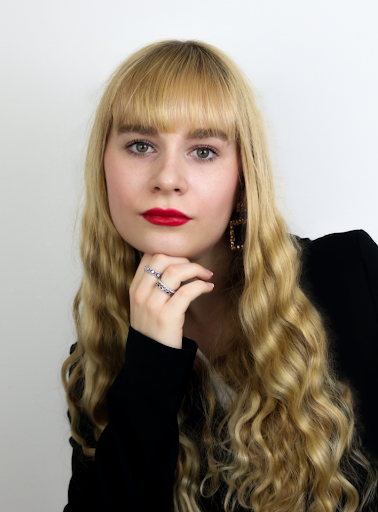
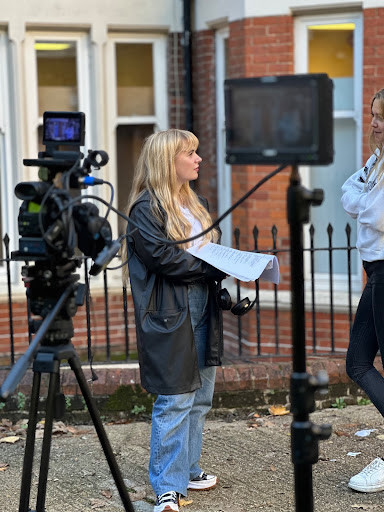
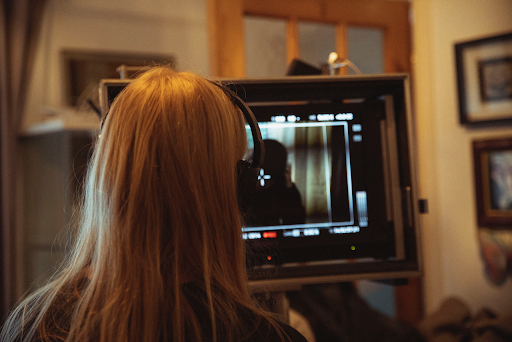
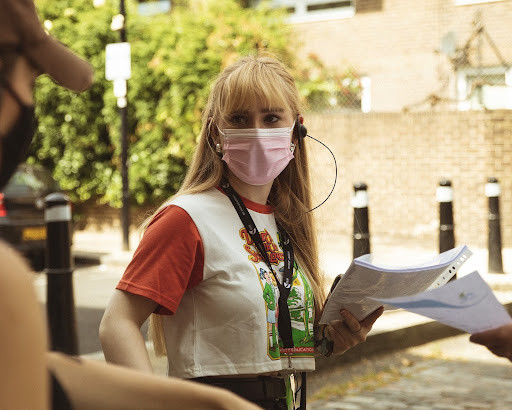




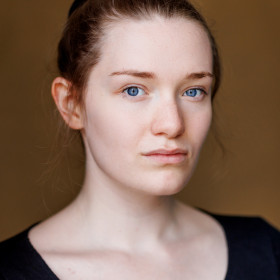
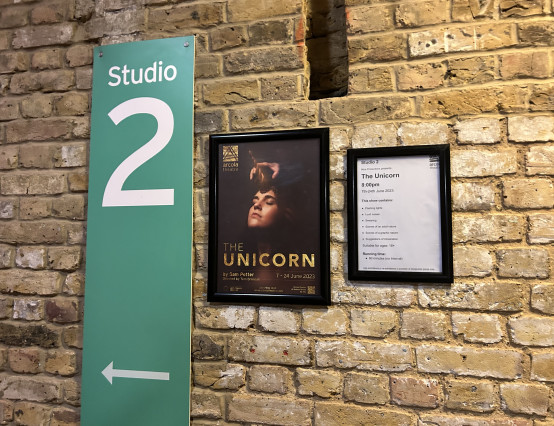
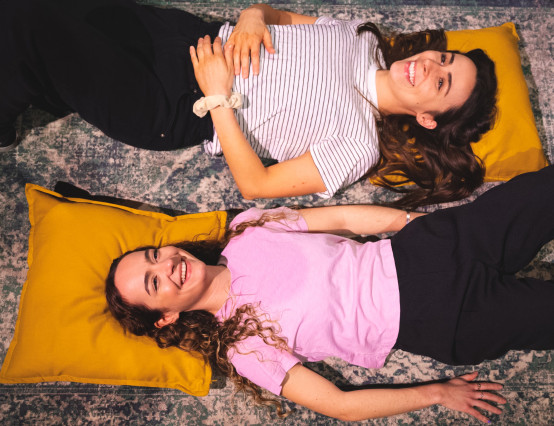
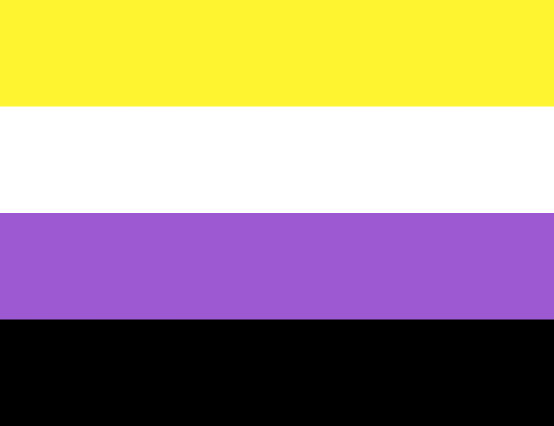
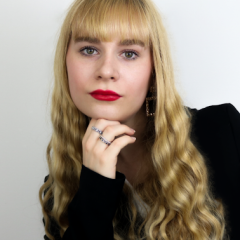


0 Comments